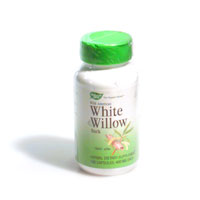Conclusion




Conclusion




Who Sells Herbal Supplements?
Herbal Supplements can be found in almost all health food stores, vitamin stores, and pharmacies.
Where can advertisements be found?
Advertisements for Herbal Supplements have been found in magazines, on the Internet, on television commercials, and on the radio.
Why should the FDA ban advertising?
Lack of Standardization and Monitoring
There is a severe lack of national
standardization which complicates the assessment of herbal safety and its
effectiveness as medicines. Depending on genetic variation of different
strains of herbs, growing conditions, timing and method of harvesting and
exposure to air can all effect the potency of the herbs. Different
dosages of the herbs are difficult to establish because of these variations.
Inadequate methods used for collecting, storing and marketing of natural
products may promote fungal contamination. Marketing under common
names can add to the the consumer's confusion, because different plants
may have the same common name in different parts of the U.S.
Physicians should be required to ask
what substances their patients are taking. They should know or should
inform themselves about the drug and disease interactions with supplements.
Many physicians, however, fail to ask what supplements their patients are
using and often patients feel embarrassed to tell the doctor they are self
medicating or don't consider herbal supplements as having an effect with
prescription drugs. Since these patients are not informing their
physicians, interactions or side effects cannot be monitored. Some
patients suffering from cancer, depression and HIV infection may be tempted
to self treat. This stoppage of prescription medications with substitution
of herbal supplements, which contain an unknown purity and potency is a
very unsafe and possibly deadly practice.
Adverse Reactions and Interaction Potential
Some herbal products actually have a potential for significant adverse reactions. Some interactions include allergic reactions, miscarriages, or even death. Consumers should be aware of these interactions. There should be warning labels or some form of documentation about these possible interactions on the bottles. Yet these products are still advertised and available almost anywhere.